Spying Through Your Home Camera?
In an era where smart homes are becoming the norm, security cameras have become as common as refrigerators. People install them in their living rooms, entryways and even bedrooms—hoping to deter intruders, monitor loved ones, or simply gain peace of mind. But here's the uncomfortable truth: those same cameras that make you feel safe can also make you incredibly vulnerable.
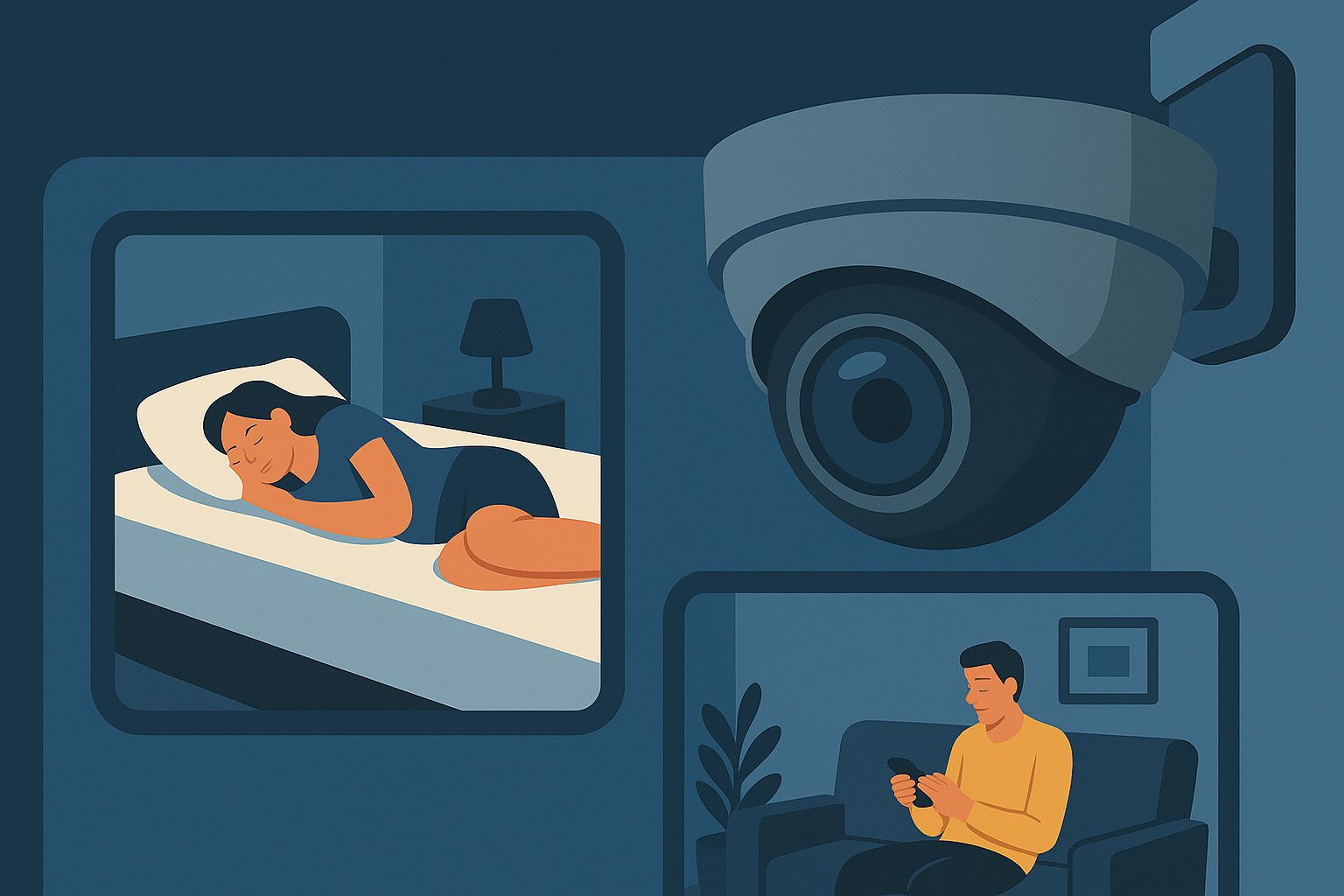
Real-Life Breaches: When Privacy Turns Into Public Spectacle
These aren’t hypothetical risks. There are real, chilling cases of hackers hijacking home cameras and exposing intimate footage:
The Ring Camera Hack
In 2019, Amazon’s Ring faced a lawsuit after hackers hijacked users' home cameras, delivering threats and harassment through the devices. The suit claimed Ring failed to enforce basic security measures like two-factor authentication, leaving families vulnerable.
In Mississippi, a family’s Ring camera in their daughter’s bedroom was hacked. A stranger used the microphone to speak to the 8-year-old girl, claiming to be “Santa Claus.” The parents had no idea the camera was compromised until their daughter alerted them.
Below is an actual screenshot from the published camera footage provided to the media by the girl's mother.
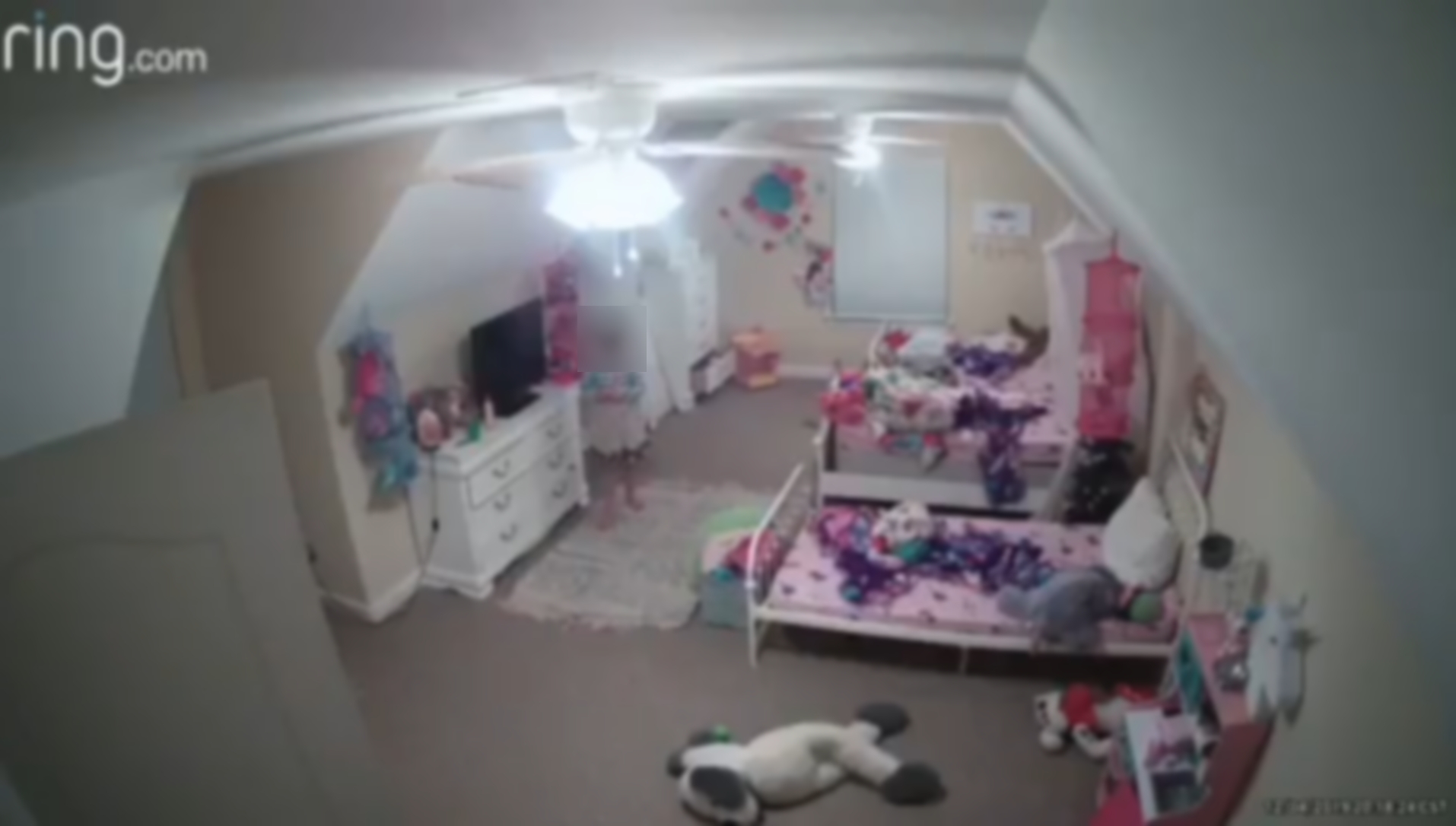
Webcam Streaming Sites
There are entire websites dedicated to streaming hacked security cameras—from living rooms to private bedrooms. These platforms collect footage from insecure devices all over the world and broadcast them to anyone with an internet connection.
The image below shows an example of a publicly accessible camera in France, including its estimated location. The camera does not even need to be hacked; it is enough that the owner did not change the default password and configured their network (perhaps unknowingly) in such a way that the camera became freely accessible to anyone.
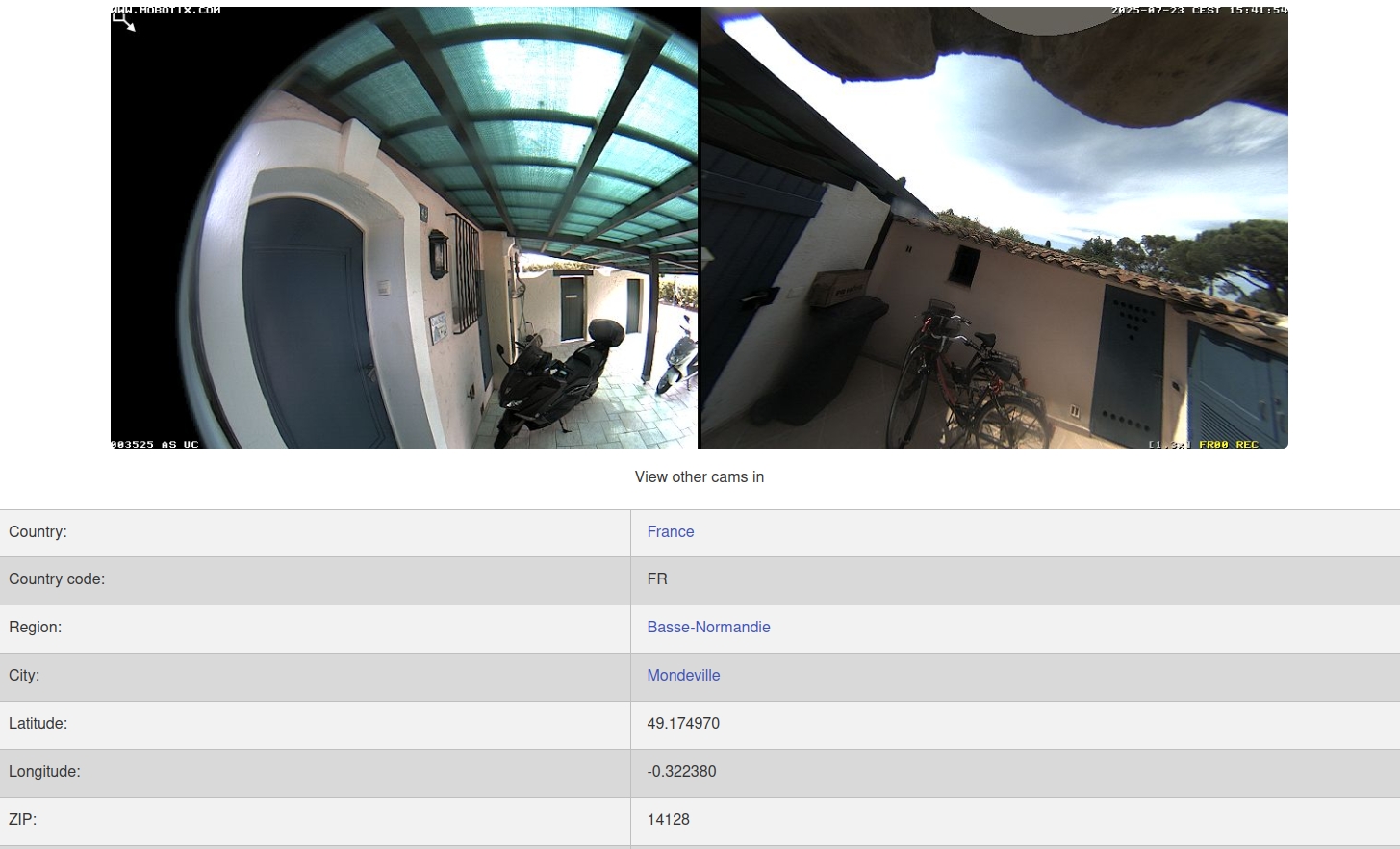
Another freely accessible camera, this time in Germany. The owner has made it accessible without a password; all you need to know is the IP address (censored in the image) where it is available, and anyone can watch. As can be seen, the camera shot shows the entrance gate, which is a clear invasion of privacy.
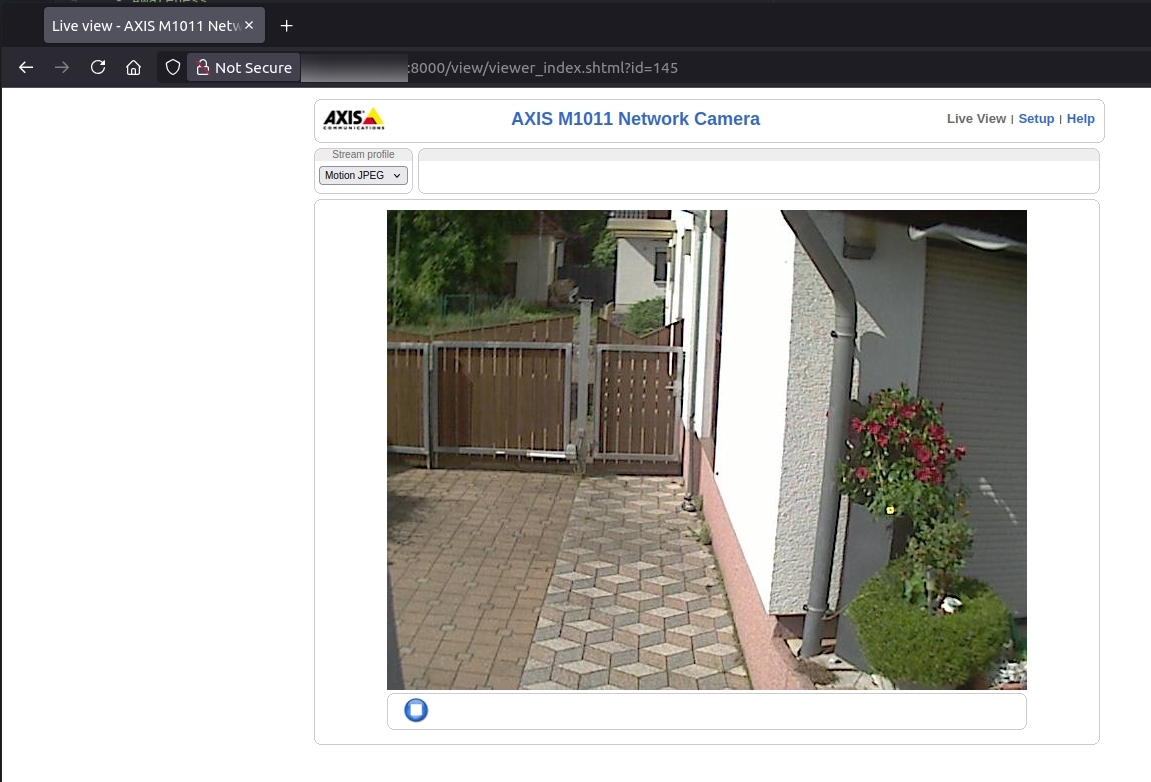
Footage for Sale on the Dark Web
In several reported cases, cybercriminals have gained access to private camera footage and sold it online. Some videos fetch higher prices when they include nudity or family arguments, making your personal life a commodity for criminals.
Below is an example of illegally offered footages from the private spaces of unsuspecting victims.
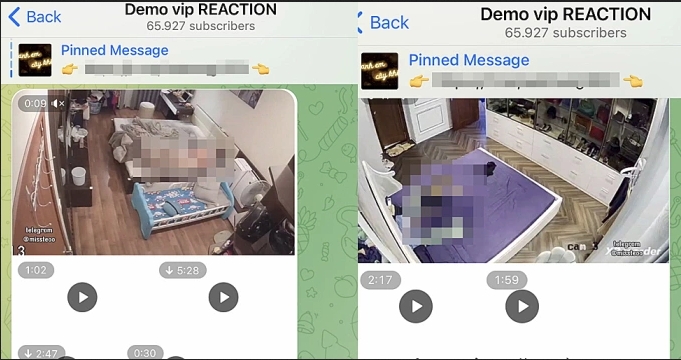
Signs Your Camera May Be Compromised
- Strange noises or voices coming from the camera.
- The camera moving on its own.
- LED lights blinking unexpectedly.
Why Is This Happening?
The primary reason: poor cybersecurity practices.
- Default Passwords: Many people never change the factory-set username and password. The problem is not only default passwords on cameras, but also on WiFi routers and other devices connected to the Internet. Hackers use automated tools to scan the internet for such devices.
- Incorrectly configured network: It may happen that the network to which the camera is connected is incorrectly configured, allowing an attacker to exploit a security ‘hole’ and gain access to the camera.
- Outdated Software: Security cameras, like all smart devices, need updates. When ignored, they remain vulnerable to known exploits.
- Leaked passwords: In the past, there have been cases where the passwords of users who purchased cameras accessible via the manufacturer's cloud were leaked. These cases are not that common, but it is difficult for users to defend themselves against them.
Recommendations: How to Protect Yourself
-
Avoid Placing Cameras in Highly Private Areas: Bedrooms and bathrooms should always be off-limits. Ask yourself: Do I really need a camera here?
-
Change Default Credentials Immediately: Create strong, unique passwords. Use a password manager if needed.
- Read more: Latest Password Recommendation
-
Cover the Lenses When You Don't Want The Camera To Film You*: A simple piece of tape or a sliding camera cover can prevent spying if you’re especially concerned.
-
Enable Two-Factor Authentication (2FA) : Most reputable camera brands offer 2FA—use it. This will significantly reduce the possibility of your account being hacked.
-
Update Your Smart Devices Regularly: Keep firmware and software up to date. Set reminders if needed.
- We wrote about the issue of outdated smart home devices in one of our previous articles. Be sure to check it out !
What Can We Help You?
The Redamp.io platform offers an easy way to view open ports on your network. The image below shows port 9118 open from the internet. In addition, we have identified that behind this port is a Hikvision camera.
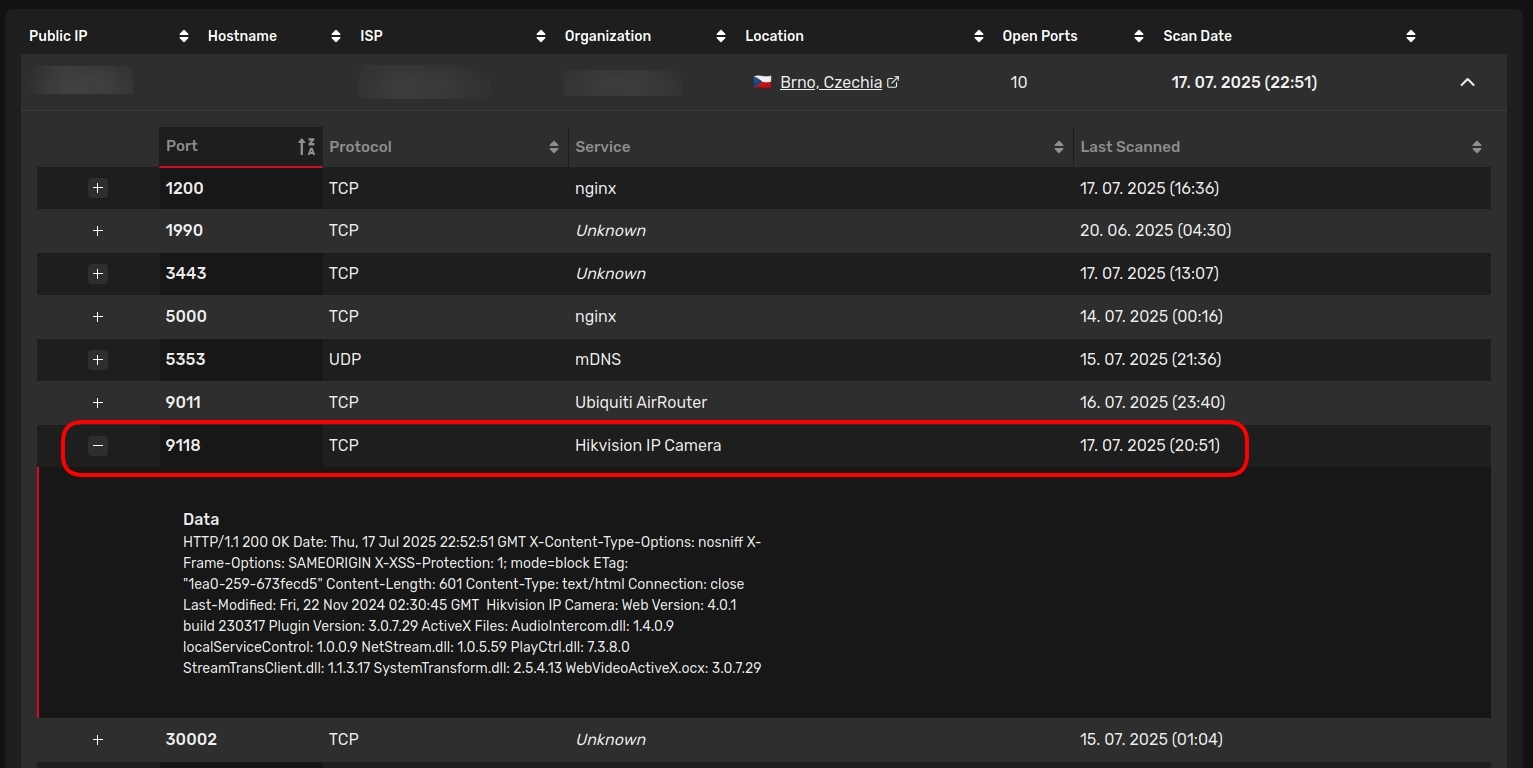
This provides administrators and IT technicians with an effective tool for detecting potential unauthorized access paths that could be exploited by attackers.
Interested? Contact us!
Sources: